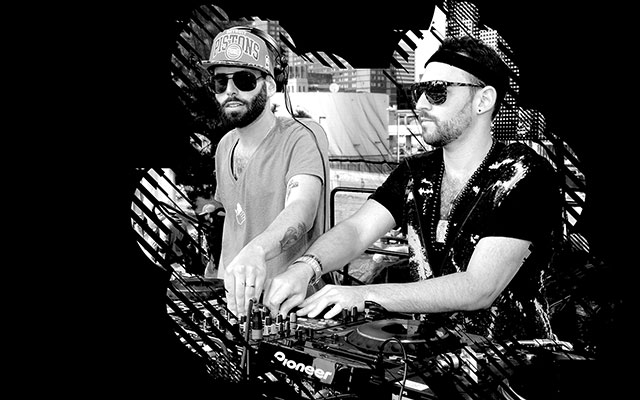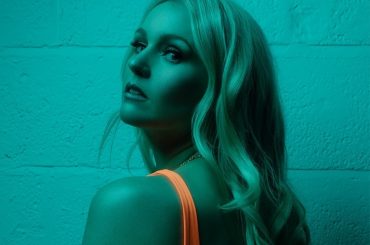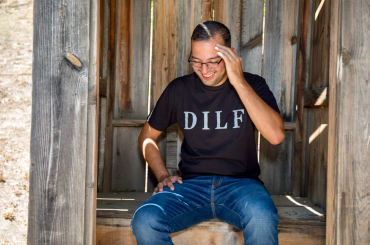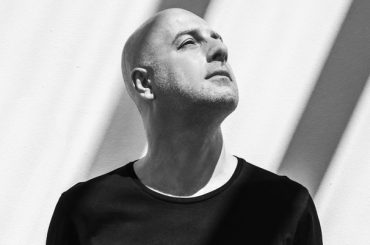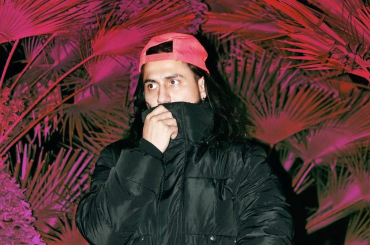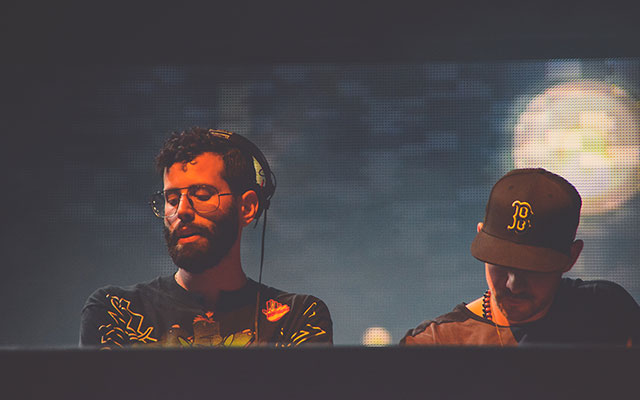
Goldstein: I like Audio-In Records in Berlin, Rush Hour in Amsterdam, and Love Vinyl and Phonica, both in London. Going shopping for physical records is so important nowadays because there’s so much music that only comes out on vinyl.
Levine: I want to add Downtown Records [in New York City] to that list. They don’t have a storefront, but in the past year, I’ve been ordering a lot from there and then taking a taxi down the street to pick them up, which is a luxury for New York residents.
DJ Times: Do you have any favorite record shops here in Brooklyn?
Goldstein: Superior Elevation Records. It’s more of a crate-digging spot. Tom Noble—aka “Disco Tom”—and his wife opened that spot. It’s dope.
Levine: There’s also A1 Records, and then Turntable Lab, which stocks a lot of new product. But, yeah, the U.S.A. doesn’t compare Europe when it comes to records. We’re spoiled by being able to visit the shops over there so often.
DJ Times: Do you think the digital revolution has helped or hurt DJs when it comes to music discovery? Nowadays, a lot of kids coming up have never even touched vinyl.
Levine: That’s a difficult question. There’s something indescribable about having to go through the record-store listening process – having guys in the store with amazing ears that can turn you on to new sounds. But there’s also a treasure trove of music available on platforms like SoundCloud.
Goldstein: With digital, you can carry so much more music with you, which can be really exciting, but can also be really daunting. It can water down your sound or you can be prepared for anything. Most of all, digital makes it easier to DJ, but that means that there’s often less craft or skill that goes into a DJ set. Newer digital DJs don’t have to learn the same things that we had to learn in order to survive. I’m not saying that playing with analog is always better because there are so many cool things you can do with software like Serato, Traktor, or plugging USBs into CDJs.
Levine: Where digital is detrimental is that kids aren’t learning about selection and timing anymore. There are plenty of EDM kids playing big stages and doing cool, technical shit, but they’re just serving up the same set every time. To me, being a DJ is learning when to play the deep cuts, making different selections on the fly and being able to play in different settings.
DJ Times: What’s it like playing in your new hometown of NYC?
Goldstein: It’s really nice to play here because we can bring more records than normal, and pick specific records for the gig because we’re just going down the street. That’s one thing that’s nice about playing here at Output. I love it.
Levine: People in New York generally keep an open mind and know a lot of the classics. You have a lot more “heads” out here.
DJ Times: What equipment you use when DJing?
Goldstein: Vinyl and CDJs. We always bring vinyl with us, but sometimes we might play a festival and the turntables will be wobbly, so we won’t play any records. But the next night we might play in a club, the vinyl will sound amazing, and we’ll get to play all the records that we brought. That relates back to what I said earlier about how one medium is not better than the other when DJing. It’s about being able to play in different settings.
DJ Times: Your Crew Love compatriots Wolf + Lamb recently resurrected The Marcy Hotel as The Marcy North. Can you tell us a little about the original Marcy Hotel?
Goldstein: There’s not supposed to be a lot of information. It’s one of those things… mysterious, living in the ether. What I can tell you is that it wasn’t really a hotel and some of the best parties of my life went down there. The first time Charlie and I went to The Marcy was during the 2007 Minitek Festival in New York. We stumbled upon it because all of the afterparties were wack. It was essentially a “who’s who” of that moment in dance music. Magda was there, Richie Hawtin was there, Seth Troxler was DJing…
Levine: Other guys like Martin Buttrich, Lee Curtis, Shaun Reeves, and Ryan Crosson were there. We met Zev and Gadi from Wolf + Lamb that night, too.
Goldstein: Coolest party ever.
DJ Times: Did meeting Wolf + Lamb that night play a part in your founding of the Crew Love collective?
Levine: Let’s rewind a bit. We had a few records out on Airdrop Records back in 2007 or 2008, but we were still living in Boston and working as mobile DJs, trying to make a living. We were DJing in bars and clubs, playing hip-hop and reggae, but we were also playing dance music at raves—trying to do Soul Clap. At some point, Macy’s—yeah, the department store—started hiring us to DJ at their fashion shows, openings, and other things like that. So, we began playing a whole different body of music that leaned more toward funk, disco, and nu-disco.
Goldstein: Discovering nu-disco back then was a big moment for us. Prins Thomas & Lindstrøm had just broken through and it was a revelation for us that we could play house with the same feeling and sound, but 10 to 20 BPM slower.
Levine: Yeah, because we didn’t have people making requests at these Macy’s gigs, and we weren’t in a rave environment, we started trying to work in our favorite funk and soul songs. We did a few edits of Stevie Wonder and Womack and then gave them to Gadi and Zev [of Wolf + Lamb] after we met them. Lucky for us, those edits became anthems for them at the Marcy Hotel. So, Gadi and Zev decided to start Wolf + Lamb Black, their bootleg label, to release that music. That was the entry point for us.
DJ Times: How did that entry into the Wolf + Lamb community develop into Crew Love as it is today?
Levine: At some point in time, !K7 Records approached us to do a Soul Clap DJ Kicks mix. We took a bunch of music from the Wolf + Lamb community of artists and put that into one complication. We called it “Wolf + Lamb vs. Soul Clap,” or WLSC. That DJ Kicks mix fused us and Wolf + Lamb together. We’re very like-minded, as far as the kind of music that we’re influenced by and the kind of music that we want to produce, so we forged a partnership and then began touring behind it. Later, once Eli and I decided that we wanted to start a record label, we needed to bring everything together. That’s were Crew Love comes in. It all falls under that umbrella now.
DJ Times: Who’s curating the Crew Love roster? Is it a team effort, or do you take a more nuanced approach when bringing in fresh talent?
Goldstein: Gadi is the gatekeeper, more than anyone. But the group is really tight, you know? It’s hard. It’s not like we’re just bringing random artists into the crew; it’s a drawn-out process. We have a more open policy of sending artists to Soul Clap Records because it’s a newer label and we’re just a little more open-minded. But ultimately, with Crew Love, we’re a family. It’s not like you can just join a family.
Levine: Let’s say you’re the hot-shit producer of the moment. When it comes to a lot of other record labels, they might sign and release just one single or EP of yours. You’ll put the name of that record label next to your name on flyers and whatnot, and that’ll become your affiliation to help you get started. But for us, if you’re going to take the Crew Love name and run with it, we want you to be someone that we can spend the rest of our lives hanging out with. It’s a much greater responsibility, so we’re very cautious about who we sign. There’s a careful vetting process that goes into it.
DJ Times: Say you’re an up-and-coming DJ or producer. Is finding a crew where your sound fits a more viable path to becoming successful? Or should you aim to become a superstar DJ, like Tiësto or David Guetta?
Goldstein: It happens really quickly for a lot of young DJs these days. For me, the best experience has always been working with collectives. You have people to hang out with, listen to music with, and tour with. But these situations are unique. If you have a crew of friends that you’re DJing and producing with, and you’re young—maybe you’re living at home and you’re still working toward your goals—then cultivate those relationships and keep going. You’re really lucky to have something like that at the beginning. But more importantly, don’t rush things. Create a mature body of music before you start shopping it around. Find your identity, know what you’re into, and then target labels that are releasing the music that you love. Don’t just aim to get one of your songs on a random radio compilation. That doesn’t help you in any way.
Levine: When we were starting out, we were trying to make music that fit into what was going on at the time, and then we realized that we weren’t necessarily being true to ourselves. It wasn’t until our “The Definition” EP was released [in 2009] that we really started honing in on our sound.
Goldstein: A lot of people get involved in dance music now because they want to be famous. They want to be that guy they see onstage, and it fucking sucks. Our message to the young DJs is this: Learn about the music, regardless of anything. Even if your goal is just to be famous, do a service to the culture and the people who have been doing it before you and learn your history.
DJ Times: How do you feel about EDM?
Levine: I’m sure there are some cool things going on, but it’s pretty hard to find. Any time you step into a taxi in Berlin, you’re bombarded by EDM – and it sucks.
Goldstein: It’s what’s on the radio – it’s pop music now. I always wonder: Are we too old and that’s why we don’t understand? It’s just a different palette of sound. But there’s still really cool, experimental, weird shit happening on labels like Soulection. Their artists are exploring new areas, like where hip hop and electronic music meets. They’re doing something from the heart and you can hear it in the music. That’s why EDM is stuck in a rut. There’s so much money to be made, and so much fame that everybody is grabbing for… instead of trying to be dope.
Levine: I would love for some of these younger cats who are into these new sounds to find us and be like, “Yo, we’re doing this, and this, and that.” Making music that’s a little bit like ours, but is still on their own tip. Something from the heart that’s funky and original, but still connected to the past. Come find us… because we’re looking for you!
DJ Times: What’s the status of the Crew Love album?
Goldstein: It’s taken a while because we’re trying to make sure that it gets the right exposure, but it’s coming very soon… early 2016, probably. It’s an important moment for us because, similar to how the DJ Kicks mix defined our sound of that moment, this album defines the sound of Crew Love. A lot of people don’t know. Maybe they’ve heard the names, or been to shows, but what is Crew Love, really? It was a collective of artists that threw parties. Now it’s a label, Crew Love Records. We’re partnering with !K7 in Germany and they’re going to be doing all our distribution and helping us with the marketing, so we have a much stronger backing now. Some of the tracks are collaborations between various artists in the crew, but the album as a whole is going to be like us: one.
DJ Times: What’s the status of the Soul Clap album?
Levine: That’s also something that’s gotten pushed back, but we’re aiming for September 2016. We have so many cool projects to choose from for this next album and it’s really coming together.
DJ Times: What are some of the projects that might make it in?
Levine: There’s extra material from our sessions in Tallahassee when we worked with George Clinton and the Parliament-Funkadelic camp. There’s also some stuff that Eli and I wrote together over the years, and a few collaborations with other Crew Love artists. Then there are sessions we did with Billy Bass Nelson, another original Parliament-Funkadelic member.
DJ Times: Let’s head into the studio. What kind of synthesizers do you use?
Goldstein: We have a lot of classic synths. We have a Roland Jupiter-8, Roland TR8, ARP Odyssey, ARP Solina, Korg MS2000, Moog Sub 37, and the Yamaha DX100. We also use Moog pedals, and the Simmons Clap Trap [handclap synth] is a signature Soul Clap tool. When we perform, I sometimes create sound effects with the Korg Monotron, which is something we use in the studio, as well. We also have really nice mic made by Mojave Audio that sounds fucking bomb. Focusrite gave us an ISA channel strip that we use, too.
DJ Times: Which DAW do you use?
Goldstein: Ableton Live. It’s so powerful and we’ve used it forever. It’s just does so much… why would you ever give it up?
DJ Times: Any favorite software plug-ins?
Goldstein: Arturia makes great software synths. They recently sent us a MicroBrute hardware synth, which we’re using a lot now. Focusrite and Novation send us a lot of great stuff, actually—they’re really generous. We also use [IK Multimedia] T-RackS plug-ins, Waves plug-ins and we’re planning on getting a UAD, too. That’s the next step.
Levine: Don’t forget Watkins’ Copicat plug-in and Audio Damage’s Ratshack reverb. Those are the jam.
Goldstein: [pauses] …we just gave away all our fucking secrets, man.
Levine: Shit! Yo, just say that we use a kazoo and a skin flute.
Goldstein: Tell them about our Iridium space crystals…
Levine: Oh, and butt bongos! That’s our real studio secret. We’ve got butt cheeks. [laughs]
DJ Times: To wrap things up, can you sum up Soul Clap in one sentence?
Levine: Yo momma!
Goldstein: EFUNK, the title of our last album, sums it up well. We’re making electronic funk that encompasses the history of P-Funk and G-Funk. Plus, E-F-U-N-K is an acronym for Everybody’s Freaking Under Nature’s Kingdom, which represents freakiness, fun, and freedom. So that’s it. That’s Soul Clap.
Levine: That… and yo momma.


